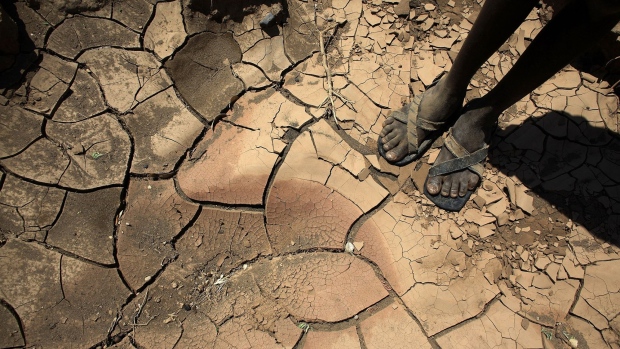Aug 5, 2022
As Ukraine War Distracts World, 900,000 May Die in West Africa
, Bloomberg News

(Bloomberg) -- With a world distracted by Russia’s invasion of Ukraine and after more than a decade of conflicts across West Africa’s Sahel region, funding for a humanitarian crisis has slumped, imperiling the lives of 900,000 people, a medical association working in the area said.
With more than 38.3 million people food insecure across West Africa, almost all of them in six nations with Sahel regions abutting the Sahara Desert, just $1.3 billion of the $3.8 billion needed has been secured as of the end of June, Kader Issaley, operations director for the Alliance for International Medical Action said, citing the latest figures available.
“There is fatigue from donors,” Issaley said in an interview on Thursday. In north west Nigeria and Niger the crisis is the worst since 2005, he said.
The famine in the Sahel is one of the least noticed in Africa this year with the continent beset by the worst drought in four decades in the Horn of Africa, a conflict in Ethiopia and the failure of four successive rainy seasons in Madagascar.
In addition to draining funding from other crises the war has driven up global food prices, as Russia and Ukraine are key sources of grain and vegetable oil, and has created a worldwide fertilizer shortage. That, Issaley said, may mean that next year is even worse as yields across the Sahel will likely fall.
While Ukraine’s humanitarian needs have been met the amount given to the Sahel has fallen from the $1.8 billion at this time last year, said Issaley, whose organization has more than 1,200 people working across six Sahel nations - Nigeria, Chad, Niger, Burkina Faso, Mali and Mauritania.
Boko Haram and Islamic State militants in north eastern Nigeria, banditry in the north west of the country and conflict with Islamist militants across Niger, Mali and Burkina Faso has made donors weary and has complicated relief efforts, he said. Food and medical distribution is difficult and easily recognizable foreign aid workers are targets for militants who kidnap them for ransom, he said.
Starving Children
“It’s time to resolve definitively the situation,” he said, referring to the conflicts.
The crisis has is now reaching its peak with food stocks running out and the harvest only coming in in October, he said.
The number of children suffering malnutrition has risen to 6.3 million from 4.9 million at the same time last year, he said.
Alima was founded in 2009 to tackle a food crisis in Niger and has treated 10 million people in 14 countries since then.
©2022 Bloomberg L.P.






